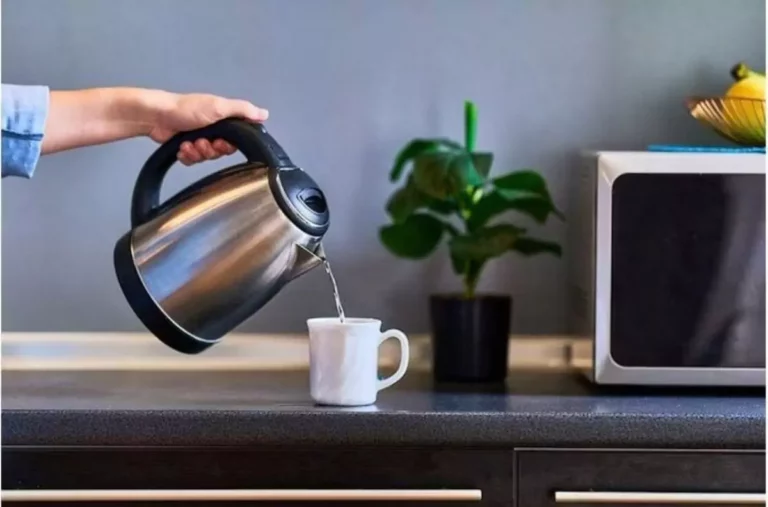How to Prevent Kitchen Sink Odors (Expert Tips)


We’ve all experienced it at some point: that unpleasant, lingering odor that emanates from the kitchen sink.
Whether it’s a faint, musty scent or an overpowering stench, kitchen sink odors can quickly turn a cooking haven into a smelly nightmare.
Fortunately, there are a few effective ways to tackle this common problem and restore a fresh, inviting atmosphere to your kitchen.
In this article, we will explore a range of preventative measures that can help banish those unwanted odors, allowing you to enjoy a clean and pleasant space where culinary creativity can flourish.
Say goodbye to kitchen sink odors once and for all!
Tips on How to Prevent Kitchen Sink Odors
Kitchen sink odors can be unpleasant and can arise from different sources, such as food particles, grease buildup, and bacteria growth. Here are a few tips to help prevent kitchen sink odors:
1. Keep the sink clean
Regularly clean your kitchen sink to remove any food residue or debris that may accumulate. Use gentle dish soap and a scrub brush or sponge to clean the sink and drain thoroughly.
2. Avoid pouring grease down the drain
Grease can solidify and accumulate in the pipes, leading to foul odors. Rather than pouring grease down the drain, it is advisable to gather it in a container and properly dispose of it in the trash.
3. Run hot water down the drain
After using your sink, run hot water down the drain for a few minutes. Hot water helps to flush away any grease or food particles that may have built up, reducing the chance of odors.
4. Use garbage disposal correctly
If you have a garbage disposal, use it properly. Run it with plenty of water while disposing of food waste, and avoid putting large amounts of fibrous or starchy items down the disposal, as they can clog the drain and contribute to odors.
5. Maintain a regular cleaning routine
Clean your garbage disposal regularly to prevent food particles from accumulating and causing odors. You can do this by placing ice cubes, citrus peels, or a mixture of baking soda and vinegar in the disposal.
6. Use drain cleaners or natural remedies
Occasionally, you may want to use a drain cleaner or natural remedies to remove any buildup and eliminate odors. Commercial drain cleaners can be effective, but be sure to follow the instructions carefully. You have another option to unclog the drain by combining baking soda and vinegar and then flushing it with hot water.
7. Avoid leaving dirty dishes in the sink
Leaving dirty dishes in the kitchen sink for an extended period can contribute to odors. Wash dishes promptly or at least rinse them and place them in the dishwasher if available.
8. Check for leaks
Persistent odors may indicate a plumbing issue, such as a leak or stagnant water in the pipes. Inspect the area under the sink for any leaks and have them fixed promptly to prevent odors and further damage.
9. Use a drain strainer
Install a drain strainer or screen over your sink drain to catch food particles and prevent them from going down the drain. This can help minimize odor-causing substances from accumulating in the pipes.
What Causes Kitchen Sink Odors?
Several factors can contribute to kitchen sink odors. Here are some common causes:
Food particles
Food scraps that are washed down the sink can accumulate in the drain or garbage disposal. Over time, these food particles can decompose, leading to unpleasant odors.
Grease and fat buildup
Pouring grease or fat down the sink can cause it to solidify in the pipes, creating blockages and trapping food particles. The combination of trapped food and solidified grease can produce foul odors.
Bacteria and mold growth
Warm, moist environments like kitchen drains provide a breeding ground for bacteria and mold. These microorganisms can thrive in the presence of food residue and organic matter, resulting in odors.
Clogged or stagnant drains
If the drain becomes clogged or the water flow is restricted, it can create standing water in the pipes. Stagnant water can emit unpleasant smells as bacteria and other microorganisms multiply.
Insufficient cleaning
Infrequent or inadequate cleaning of the sink and drain can allow debris, food particles, and bacteria to accumulate, leading to odors.
Plumbing issues
Leaks or damaged pipes can cause water to accumulate under the sink or in other areas, leading to stagnant water and foul odors. These issues may require professional attention to fix.
Inadequate ventilation
Poor ventilation in the kitchen can trap odors and moisture, creating an environment conducive to odor development.
Additional Tips for Odor-Free Sink
Here are some additional tips to help keep your kitchen sink odor-free:
Freshen the drain with citrus
Cut up citrus peels (such as lemon, lime, or orange) into small pieces and run them through the garbage disposal. The citrus oils can help combat odors and leave a fresh scent.
Use baking soda
Apply a small amount of baking soda into the sink’s drain and allow it to sit for a few moments before rinsing it thoroughly with hot water. Baking soda can help neutralize odors and break down organic matter.
Apply vinegar
Pour a small cup of vinegar down the drain and let it sit for about 30 minutes. The acidic nature of vinegar helps eliminate odors and dissolve buildup. Rinse with hot water afterward.
Try enzymatic cleaners
Enzymatic drain cleaners contain helpful bacteria that feed on organic waste, effectively breaking it down and reducing odors. Follow the general instructions on the product for the best results.
Use a mixture of baking soda and vinegar
To create a fizzy cleaning solution for your drain, begin by pouring one cup of baking soda and then simply adding one cup of vinegar. Let it sit for a few minutes, then flush it with hot water. This combination can help remove stubborn odors and residue.
Maintain proper garbage disposal usage
Avoid putting non-food items, fibrous materials, bones, or excessive amounts of food waste into the garbage disposal. Dispose of them properly in the trash. Using cold water while running the disposal can help solidify and flush away any grease or fat.
Regularly clean the drain stopper
Remove and clean the drain stopper or strainer regularly to prevent buildup and potential odor sources.
Keep the sink and surrounding areas dry
Excess moisture can facilitate the proliferation of bacteria and mold, ultimately resulting in the development of unpleasant odors. Wipe down the sink, faucet, and surrounding surfaces to keep them dry after use.
Install an air freshener
Consider using an air freshener or odor-absorbing products near the sink area to maintain a pleasant fragrance in the kitchen.
FAQs
Are there any commercial products that can help prevent kitchen sink odors?
Yes, there are commercial products available specifically designed to eliminate kitchen sink odors. These products include enzymatic drain cleaners, odor-neutralizing gels or sticks, and drain deodorizers. Follow the instructions provided by the manufacturer when using these products.
Can a garbage disposal help prevent kitchen sink odors?
While garbage disposal can help break down food waste, it is not a guarantee against sink odors. Food particles can still accumulate in the drain or disposal unit and contribute to odor development. Regular cleaning and maintenance of the garbage disposal are necessary to prevent odors.
Why does my kitchen sink have a bad odor?
Kitchen sink odors can occur due to various reasons, such as food debris, grease buildup, bacterial growth, or clogged drains. The combination of organic matter and moisture in the sink can lead to the development of unpleasant odors over time.
Wrap Up
Maintaining odor-free kitchen sinks is crucial for upholding a hygienic and wholesome environment within our households.
By implementing the simple tips discussed in this article, such as regular cleaning, avoiding food debris buildup, and using natural deodorizers, we can effectively prevent kitchen sink odors.
Remember, a fresh-smelling sink not only improves the overall ambiance of our kitchen but also promotes good hygiene.
Through dedicated effort and regular upkeep, we can bid farewell to unwelcome odors, relishing a continuously fresh and welcoming kitchen atmosphere each day.






